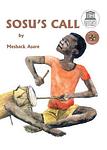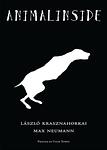The Greatest Hungarian, Ghanaian "Fiction" Books Since 1990
Click to learn how this list is calculated.
This list represents a comprehensive and trusted collection of the greatest books. Developed through a specialized algorithm, it brings together 300 'best of' book lists to form a definitive guide to the world's most acclaimed books. For those interested in how these books are chosen, additional details can be found on the rankings page.
Genres
Countries
Date Range
Reading Statistics
Click the button below to see how many of these books you've read!
Download
If you're interested in downloading this list as a CSV file for use in a spreadsheet application, you can easily do so by clicking the button below. Please note that to ensure a manageable file size and faster download, the CSV will include details for only the first 500 books.
Download-
1. Homegoing by Yaa Gyasi
This epic novel traces the lineage of two half-sisters from 18th century Ghana to present day America. One sister is sold into slavery and shipped to America, while the other is married off to a British slaver and remains in Africa. The book follows their descendants through the generations, exploring the lasting impact of slavery and colonialism on Black lives. The narrative showcases the struggles, resilience, and triumphs of each generation, providing a deep and personal view into the historical events and societal changes that shaped their lives.
-
2. Celestial Harmonies by Peter Esterhazy
"Celestial Harmonies" is a historical novel that tells the story of the aristocratic Esterházy family, tracing their lineage from the late Middle Ages to the present day. The narrative is divided into two parts, with the first part featuring a series of vignettes about the family's ancestors, while the second part focuses on the experiences of the narrator's father under the Communist regime in Hungary. The novel is characterized by its intricate structure, complex themes, and lush, poetic language, offering a rich exploration of Hungarian history, family dynamics, and the human condition.
-
3. Changes by Ama Ata Aidoo
"Changes" is a novel that explores the complexities of modern African life, particularly for women, through the story of its protagonist, a young woman named Esi. After enduring an unhappy marriage, Esi decides to divorce her husband in pursuit of independence and personal fulfillment. She then enters into a polygamous marriage with a man named Ali, believing it will allow her more freedom and respect. However, as the narrative unfolds, Esi confronts the realities and challenges of her choices, including societal expectations, the intricacies of love, and the struggle for a sense of identity amidst the changing cultural landscape of contemporary Ghana. The novel delves into themes of feminism, tradition, and the evolving roles of women in society.
-
4. Cutting The Rose by Efua Doorkenoo
"Cutting The Rose" is a gripping and thought-provoking novel that delves into the complexities of identity, culture, and the power dynamics within a Ghanaian community. Set in the 1960s, the story follows the life of a young woman named Akosua, who must navigate the expectations placed upon her as a woman in a patriarchal society while also grappling with her own desires and ambitions. Through vivid storytelling and rich character development, the author explores themes of tradition, love, and the pursuit of self-discovery in a changing world.
-
5. Sosu's Call by Meshack Asare
"Sosu's Call" tells the story of a young boy named Sosu, who is born without the ability to walk. Despite this physical limitation, Sosu possesses a remarkable talent for carving beautiful objects out of wood. When his village is hit by a devastating storm, Sosu's bravery and resourcefulness are put to the test as he must find a way to save his community from the aftermath of the disaster. Through determination and the power of his artistic gift, Sosu becomes a symbol of hope and inspiration for his village.
-
6. Jadviga Párnája by Pál Závada
"Jadviga Párnája" is a historical novel set in a Hungarian village at the turn of the 20th century. It delves into the life of a young woman named Jadviga, who is of Polish descent, and her marriage to a Hungarian man, András. The narrative unfolds through a series of letters, diary entries, and other documents, painting a vivid picture of rural life, social norms, and the personal struggles of the characters. The novel explores themes of love, fidelity, identity, and the complexities of human relationships against the backdrop of a society grappling with change and the influences of modernity.
-
7. The Book Of Fathers by Miklós Vámos
"The Book of Fathers" chronicles the lives of twelve generations of men from a Hungarian family, spanning over 300 years from the 18th century to the modern day. Each chapter focuses on one descendant, capturing the historical and personal challenges they face, from the rise and fall of empires to the intimate struggles of love and loss. The novel weaves a tapestry of Hungarian history and the family's legacy, marked by a mystical diary that is passed down from father to son, which possesses the power to influence the fate of its keeper. Through the generations, the book becomes a symbol of the family's heritage and the enduring connection between the past and the future.
-
8. Animalinside by László Krasznahorkai, Max Neumann
"Animalinside" is a haunting and surreal novella that delves into the mind of a narrator who becomes consumed by an animalistic alter ego. As the protagonist's thoughts and actions blur the line between human and animal, the narrative takes on a dark and disorienting tone, exploring themes of identity, violence, and the primal instincts that lie within us all. Through the collaboration of Krasznahorkai's mesmerizing prose and Neumann's striking illustrations, "Animalinside" offers a mesmerizing and thought-provoking exploration of the human psyche.
-
9. Wife Of The Gods by Kwei Quartey
In a small village in Ghana, a young woman's body is found in a sacred forest, sparking an investigation led by Detective Inspector Darko Dawson. As he delves into the case, Darko uncovers a web of secrets and corruption that reaches high into the country's political elite. Along the way, he must confront his own personal demons and navigate the complexities of his culture and beliefs. With vivid descriptions of Ghanaian life and a gripping plot, "Wife Of The Gods" is a compelling crime novel that explores themes of tradition, power, and the clash between modernity and ancient customs.
-
10. Gergő és Az álomfogók by Gyula Böszörményi
In this enchanting tale, a young boy named Gergő discovers a mysterious world of dream catchers who are responsible for protecting dreams from the nightmares that seek to disrupt them. As Gergő embarks on a thrilling adventure, he learns about the delicate balance between the dream world and reality, and the importance of confronting one's fears. With the help of new friends and his own courage, Gergő must navigate through this fantastical realm to ensure that the harmony of dreams is preserved for himself and others. Along the way, he gains insights into bravery, friendship, and the power of imagination.
-
11. állítsátok Meg Terézanyut! by Zsuzsa Rácz
"Állítsátok meg Terézanyut!" is a comedic novel that delves into the complexities of family life through the lens of Hungarian culture. The story centers around a middle-aged woman whose children have grown up and are leading their own lives, leaving her to navigate the challenges of an empty nest. As she attempts to maintain control over her family and their affairs, her overbearing nature leads to a series of humorous and heartwarming misadventures. The novel explores themes of motherhood, independence, and the evolving dynamics of familial relationships, all while offering a satirical look at the generational gaps and societal expectations within a modern family setting.
-
12. Parallel Stories by Péter Nádas
This novel is a vast and intricate narrative that weaves together the lives of characters across different generations and locations, primarily in Hungary and Germany, spanning from the 1930s to the 1980s. Through a series of interconnected stories, the book explores themes of identity, history, sexuality, and politics, delving deep into the personal and collective experiences of its characters. The narrative structure is complex, with a rich tapestry of details and a deep psychological insight into human nature, reflecting on the impact of historical events on individual lives and the interconnectedness of human experiences across time and space.
Reading Statistics
Click the button below to see how many of these books you've read!
Download
If you're interested in downloading this list as a CSV file for use in a spreadsheet application, you can easily do so by clicking the button below. Please note that to ensure a manageable file size and faster download, the CSV will include details for only the first 500 books.
Download





